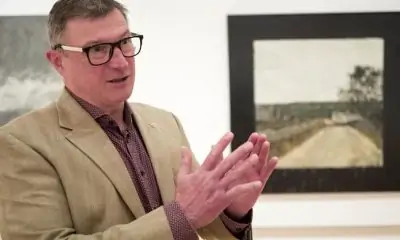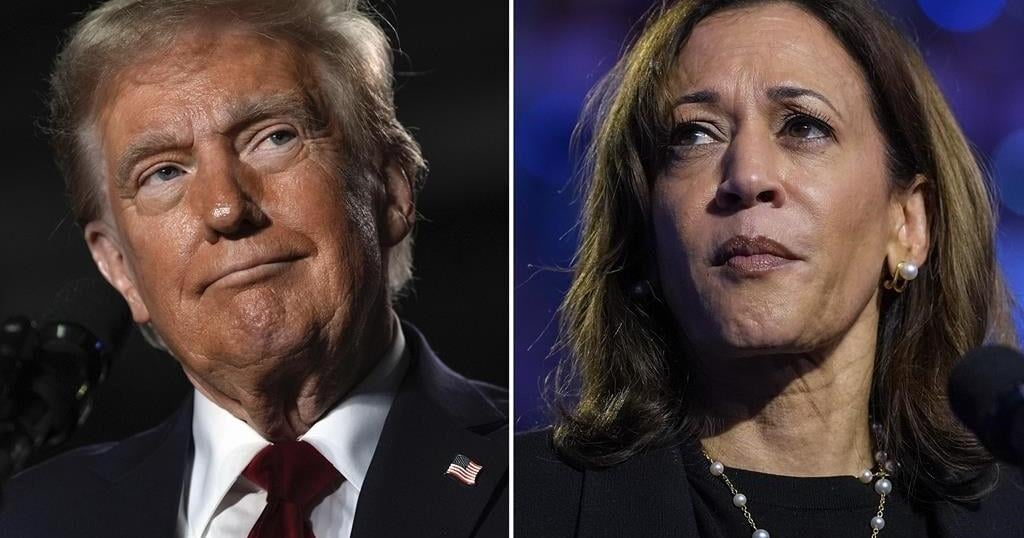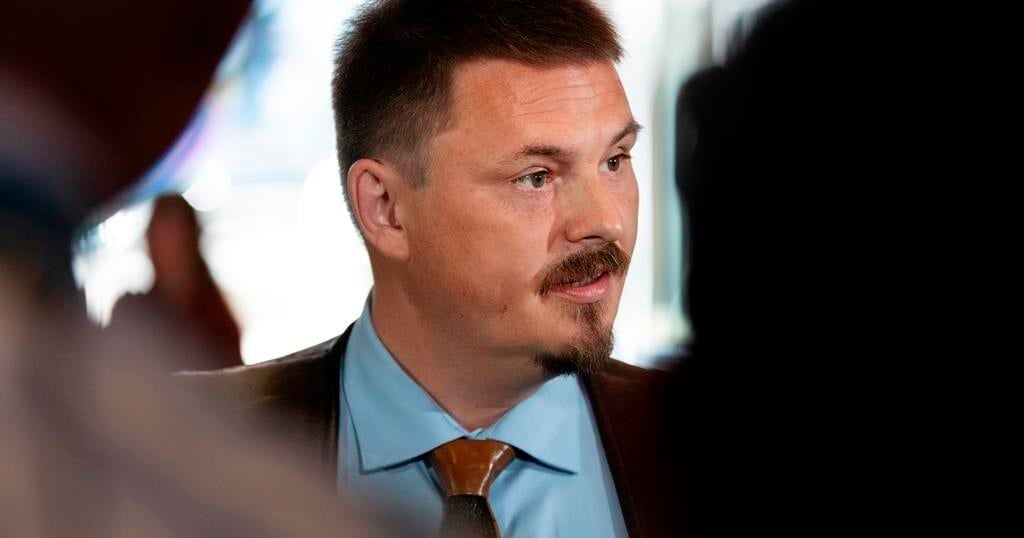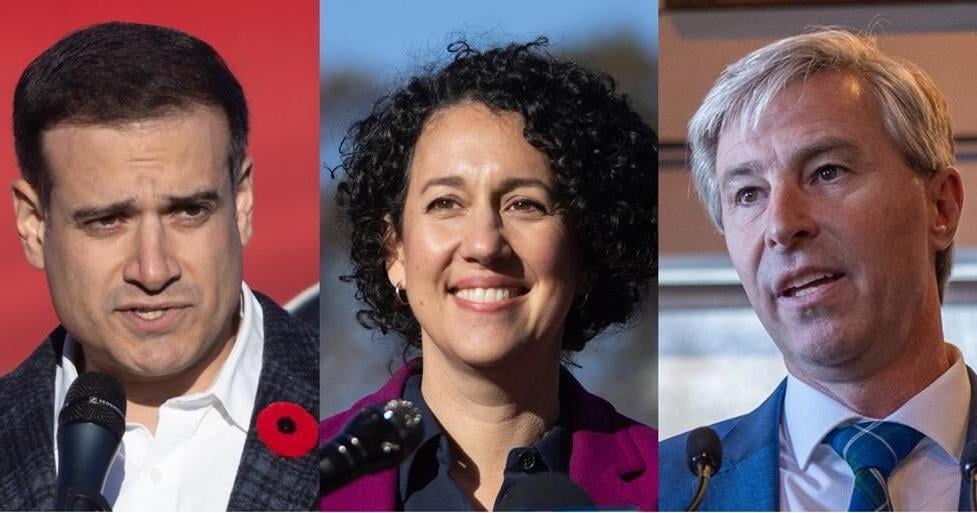WASHINGTON – Former president Donald Trump declared victory early Wednesday morning as the path to victory for Vice-President Kamala Harris was significantly diminished by Pennsylvania’s swing back to the Republican leader.
“I will govern by a simple motto: promises made, promises kept,” Trump said to cheering party faithful at a Florida watch party.
When the Republican leader gave his speech, only Fox News had declared his triumph. Trump spoke about helping the country heal and fixing the border, saying he will fight for American families with every breath in his body.
“Look what happened. Is this crazy?” Trump said. “But it’s a political victory that our country has never seen before.”
Americans anxiously watched as the results of Tuesday’s election rolled in, revealing a deeply divided United States as a handful of critical battleground states were still being counted late into the night.
Trump also took the battleground states of North Carolina and Georgia, crushing much of the hope Democrats were holding on to as they waited to see how Harris performed in Michigan and Wisconsin.
Harris’s campaign chair sent a memo to staff late Tuesday that the Midwestern “blue wall” states were the Democrat’s “clearest path” to victory and they were prepared for vote counting to continue through Wednesday morning.
“If you had asked me earlier, I would have said cautiously optimistic, I think seeing the numbers come in, I am feeling more trepidation,” said Alessia Stewart at a watch party in Washington where disappointment echoed through the room each time Trump showed gains. “But still trying to hold on to some optimism.”
As the chaotic presidential campaign reached its peak, many Americans remained caught between concern and excitement. Bars throughout the U.S. capital were packed with people watching the results come in.
At Union Pub near Capitol Hill, election specials included the Dirty Walz — with Mountain Dew, vodka and grenadine — and They’re Drinking The Cats — with whiskey and sour mix served with cat straws.
Some businesses had already boarded up windows and security fences were erected outside the White House, putting some visitors to the famous building on edge about violence on election day.
“Whatever happens in the election, I am confident in America,” said Randy Biard, who is from Tennessee, in Washington Tuesday afternoon.
Harris and Trump have presented starkly different visions for the future, but as millions of Americans cast their ballots, polling suggested the two remained in a dead heat.
Trump was holding a watch party at Mar-a-Lago in Florida where party faithful cheered loudly every time it was announced the Republican was leading Harris.
Harris was gathering with supporters at her alma mater, Howard University in Washington.
Howard students gathered in the campus gymnasium for a watch party filled with music and dancing. When early results started to come in, spirits remained high despite the uncertain outcome.
“I’m very excited, nervous, but I think what’s meant to be will be,” said 20-year-old party attendee Tyette Manna.
A shared history and an 8,891-kilometre border will not shield Canada from the election’s outcome. Kirsten Hillman, Canada’s ambassador to the United States, said “any election in the U.S. is important and impactful for us.”
“They are central to our economic prosperity. They are a vital security partner.”
Hillman has been travelling across America meeting with key members of the Republican and Democrat teams to prepare for any outcome. On election night, after her embassy duties were finished, she planned to watch the results with her husband and friends.
Hillman is keenly aware of the immense stakes at play for Canada.
“Whoever is sitting in the Oval Office and populating Congress is making decisions that may affect Canada, either decisions that provide us with opportunities or decisions that pose challenges for us,” Hillman said. “The job is to be ready for both.”
Both candidates have proposed protectionist policies, but experts warn if the Republican leader prevails the relationship between the neighbours could be much more difficult.
“Trump and some of the key people around him, including (former trade representative) Robert Lighthizer, really want to stick it to Canada,” said Fen Hampson, a professor of international affairs at Carleton University in Ottawa.
Trump’s first administration demonstrated how vulnerable Canada is to America’s whims when the former president scrapped the North American Free Trade Agreement.
Negotiating its successor, the Canada-U.S.-Mexico Agreement, was a key test for Ottawa after Trump’s victory. Whoever takes over the White House this time will be in charge during the agreement’s review in 2026.
A cause for concern in Canada and around the world is Trump’s proposed 10 per cent across-the-board tariff. A Canadian Chamber of Commerce report suggests those tariffs would shrink the Canadian economy, resulting in around $30 billion per year in economic costs.
American economists warned Trump’s plan could cause inflation, and possibly a recession, which would almost certainly have ripple effects in Canada. More than 77 per cent of Canadian exports go to the U.S. and trade comprises 60 per cent of Canada’s gross domestic product.
“When the American economy is growing, it’s generally good for us,” Hampson said. “If they take a deep dive under Trump … that will have a knock-on effect on us, on top of tariffs.”
The election outcome could also redefine America’s role in the world. Trump is critical of giving aid to Ukraine in its war against Russia, has attacked the United Nations and repeatedly claimed he would not defend NATO members that don’t meet defence spending targets — something Canada is not doing, and won’t do for years.
Prime Minister Justin Trudeau promised to meet the target of spending the equivalent of two per cent of GDP on defence by 2032.
Trump’s first tenure also saw the Republican leader withdraw from the Paris Agreement, an international treaty to cut greenhouse gases.
Hampson said the Republicans’ push against international institutions and treaties will have “a profound impact” on Canada, but also key allies and the world order itself.
If Harris wins, it’s widely expected that there will be more normal relations based on established patterns and rules, but it does not necessarily mean smooth sailing for Canada.
It’s expected the vice-president would follow the path laid by President Joe Biden on foreign policy and trade with Canada.
Biden signed an executive order to revoke the permit for the Keystone XL pipeline, which would have transferred oil from Alberta to Nebraska. The administration’s Buy America procurement rules also caused concern in Canada.
Laura Dawson, an expert on Canada-U.S. relations and the executive director of the Future Borders Coalition, said she expects a Harris administration would continue nationalist and protectionist policies.
Harris has spoken on the campaign trail about the fact that she voted against the trilateral trade agreement and said she will return manufacturing jobs to the U.S.
It’s a great slogan and bumper sticker, Dawson said, “but it’s terrible if you are Canada.”
Dawson warned Trudeau’s team during a cabinet retreat in August that no matter who is the next president, Canada will have to work harder to maintain the existing benefits of integrated trade and travel.
This report by The Canadian Press was first published Nov. 5, 2024.
— With files from The Associated Press


































